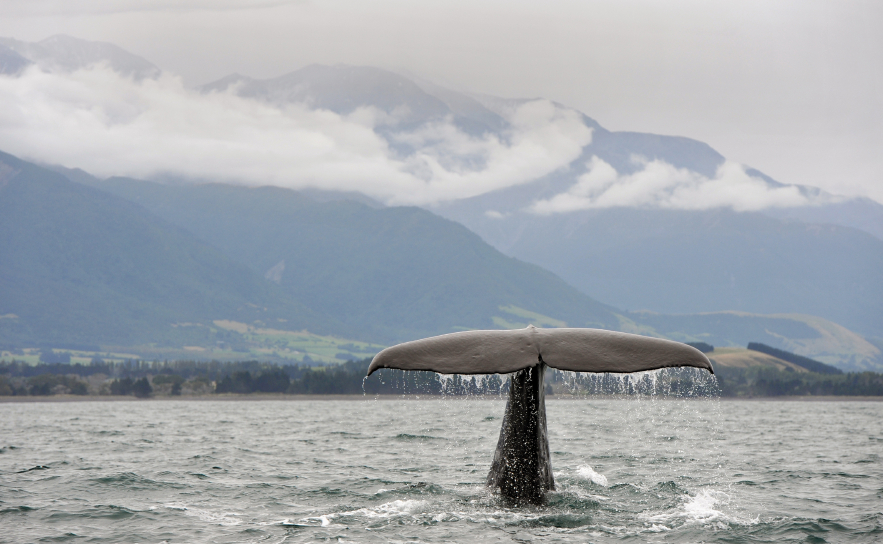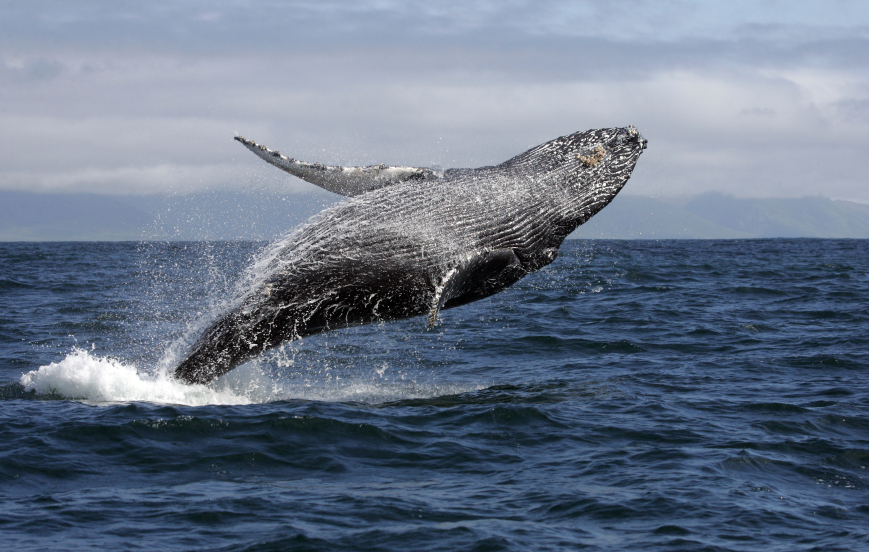
As a geographically isolated country with many unique plants and animals, New Zealand has a strong interest in species conservation. Almost half the world's 80 species of whales, dolphins and porpoises are found in our waters. Many whales migrating from the breeding grounds of the tropics to the rich feeding territories of the Antarctic travel through our region.
MFAT's advocacy for the protection of whales is largely through the International Whaling Commission (IWC), and we work closely with the Department of Conservation (DOC) to develop whale conservation policy.
New Zealand is a firm supporter of the IWC's moratorium on commercial whaling, which came into effect in 1986. We are also a strong supporter of whale sanctuaries (including the Southern Ocean Sanctuary), which are an important way to support the global recovery of depleted whale stocks and also provide an opportunity for research into whale populations. In keeping with this, we support non-lethal international whale research programmes, such as the Southern Ocean Research Partnership. We also support the work of the IWC's Conservation Committee, which works to alleviate threats to whales and other cetaceans.
We remain strongly opposed to 'scientific’ whaling in the Southern Ocean and North Pacific. New Zealand strongly believes that whale research can be carried out using non-lethal methods.
The International Whaling Commission (IWC)

The IWC is the international organisation responsible for the management and conservation of whales. The IWC’s founding document is the 1946 International Convention for the Regulation of Whaling.
The IWC can set measures to protect certain species, designate specific areas as whale sanctuaries, prescribe the seasons and areas in which whaling can take place, and set limits on the number and size of whales that can be caught.
In 1982 the IWC introduced a moratorium on commercial whaling which took effect in 1986. The IWC has also established two whale sanctuaries – one in the Indian Ocean (1987) and the other in the Southern Ocean (1994).
New Zealand is a founding member of the IWC and we are closely involved in its work. MFAT advises New Zealand's Commissioner to the IWC on diplomatic matters while DOC provides advice on scientific matters. New Zealand, along with many other member countries, would like to see the IWC’s responsibilities extended to all whales and dolphins.
We oppose ‘scientific whaling’
New Zealand has long opposed so-called ‘scientific’ whaling conducted under Article VIII of the International Convention for the Regulation of Whaling. In 2010 New Zealand joined the case brought by Australia at the International Court of Justice concerning Japanese whaling in the Southern Ocean. New Zealand was an intervening state in the case and in that capacity was able to put forward its views to the Court on the correct interpretation and application of the Convention.
In March 2014, the Court found that Japan's Southern Ocean whaling programme was not 'for purposes of scientific research' as required under the Convention and therefore had to cease. This was a major milestone.
Read the International Court of Justice’s judgement(external link)
At its 2014 meeting, the IWC adopted a resolution promoted by New Zealand (Resolution 2014-5) which implemented the Court’s reasoning and conclusions in the procedures of the IWC. The resolution requested that the members not issue themselves the special permits required for ‘scientific’ whaling until the IWC had considered the advice of its Scientific Committee and made its own recommendations on the permit proposal.

